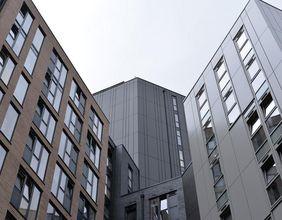Highlights
Renault (LON:RNO) begins search for new CEO after Luca de Meo’s sudden exit
Denis Le Vot and Maxime Picat emerge as top names for leadership role
Market reaction reflects concerns over future direction and strategic alliances
Renault (LON:RNO), part of the European automotive sector, witnessed significant shifts as its chief executive stepped down. This development, unfolding within the broader market landscape including the FTSE 100 and FTSE 350, has drawn close attention to the French automaker's leadership and competitive stance.
Executive Departure Prompts Speculation
The departure of Luca de Meo, who held the chief executive position at Renault for several years, has initiated an active search for his successor. De Meo's tenure was marked by a series of turnaround strategies and collaboration efforts with major industry names. The shift comes at a time when traditional automotive players are grappling with the rising presence of Chinese competitors and transformative technological advancements.
Internal and External Names Considered
Industry analysts have identified Denis Le Vot and Maxime Picat as key individuals in discussions surrounding Renault’s next leader. Le Vot, a long-serving executive within Renault, currently oversees the company's Dacia brand. Picat holds a senior role in global operations at Stellantis and has previously been evaluated for high-ranking positions in the automotive domain.
Both executives bring longstanding industry experience, and their names are being mentioned alongside possibilities from other major firms across Europe and Asia. The process remains open, and the company has not confirmed any definitive direction on the succession plan.
Investor Response to CEO Exit
Following the announcement, Renault’s shares faced a decline. This marked the company’s sharpest drop in a prolonged period, influenced by the uncertainty surrounding its strategic direction post-de Meo. In contrast, shares of Kering, where de Meo is set to take a top leadership role, experienced upward movement.
The reaction underscores the weight that leadership carries in market sentiment, particularly in sectors driven by innovation, international collaboration, and evolving consumer demands.
Strategic Alliances and Competitive Pressures
During de Meo’s leadership, Renault forged partnerships with key players in tech and automotive ecosystems, including Google, Qualcomm, and Geely. These alliances were crafted to offset the company’s relatively smaller size compared to industry giants. They also aimed to reduce operational costs amid rising development expenditures, especially in electric mobility.
However, these collaborations have raised concerns among labour groups regarding in-house expertise and long-term control over core technologies. The next CEO will be tasked with navigating these dynamics while preserving both innovation and internal capability.
Industry Position and Market Performance
Renault has seen a shift in its global ranking in recent years, overtaken by various Chinese manufacturers. This shift reflects broader trends in global automotive production and market capture. The competitive edge once by traditional European brands is being tested by rapid advancements and aggressive expansion strategies by newer entrants.
As part of a sector characterized by consolidation and joint ventures, Renault’s future moves will be closely monitored by stakeholders, with its place in the FTSE 350 shaping broader market trends. The company’s ongoing transformation, leadership direction, and strategic alignments remain focal points as the industry evolves.





